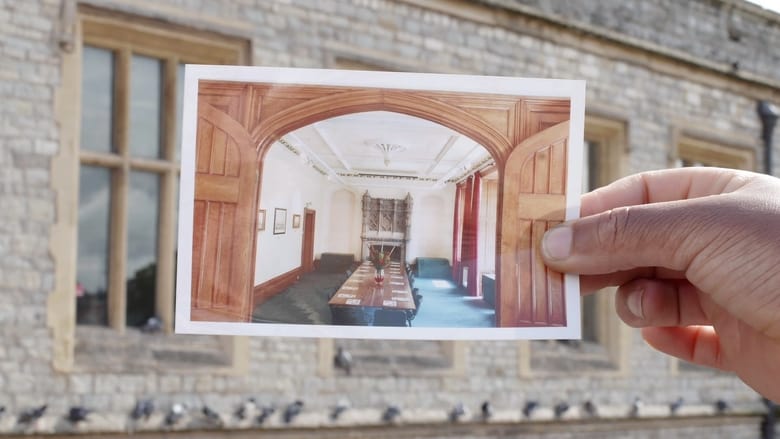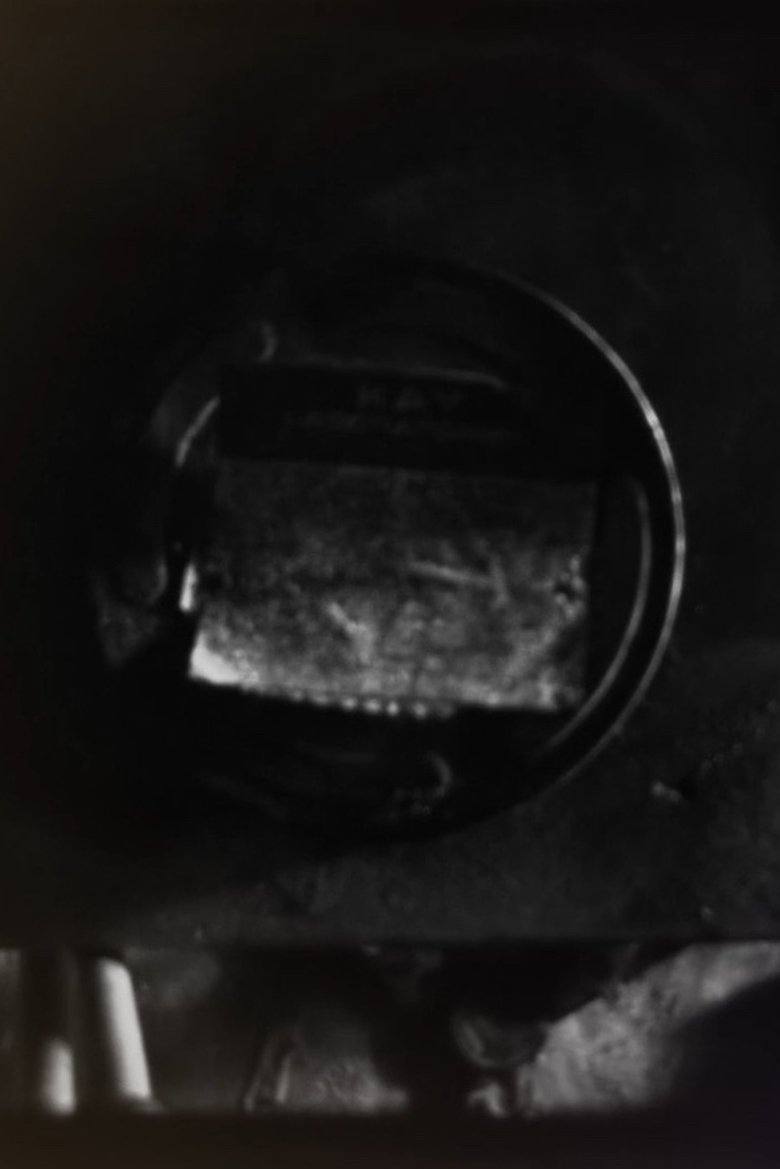

A So-Called Archive
Genres
Overview
With a forensic lens, Onyeka Igwe's A So-Called Archive interrogate the decomposing repositories of Empire. Blending footage shot over the past year in two separate colonial archive buildings - one in Lagos, Nigeria, and the other in Bristol, United Kingdom - this double portrait considers the 'sonic shadows' that colonial images continue to generate, despite the disintegration of the memory and their materials. It mixes the genres of the radio play, the corporate video tour and detective noir, with a haunting and critical approach to the horror of discovery.
Details
Budget
$0
Revenue
$0
Runtime
20 min
Release Date
2020-12-09
Status
Released
Original Language
English
Vote Count
0
Vote Average
0
Elizabeth Roxburgh
Additional Voiceover
8.5
Rif 1921, una historia olvidada
Manuel Horrillo has visited for 7 years the fields where the clashes between the Spanish troops and the rebels of the protectorate took place during the so-called Rif War, a forgotten war of the Spanish collective imaginary.
2008-07-24 | es
0.0
New Country - New People
A documentary about the history of settler groups that came to New Zealand from Europe.
1978-01-01 | en
0.0
A Luta Continua (The Struggle Continues)
A Luta Continua explains the military struggle of the Liberation Front of Mozambique (FRELIMO) against the Portuguese. Produced and narrated by American activists Robert Van Lierop, it details the relationship of the liberation to the wider regional and continental demands for self-determination against minority rule. It notes the complicit roles of foreign governments and companies in supporting Portugal against the African nationalists. Footage from the front lines of the struggle helps contextualize FRELIMO's African socialist ideology, specifically the role of the military in building the new nation, a commitment to education, demands for sexual equality, the introduction of medical aid into the countryside, and the role of culture in creating a single national identity.
1971-10-31 | en
0.0
Melting Snow
Two tons of snow—flown from New Hampshire to Puerto Rico in 1952 in order to “gift” Puerto Ricans a “white Christmas”—become a metaphor for the colonialist paternalism of America’s relationship to Puerto Rico.
2021-04-08 | en
7.0
The Moroccan Labyrinth
2007-11-15 | es
0.0
Gardens of the Orient
This portait of life on the tea plantations is decidedly rosy – clearly, there are no exploited workers here. However, the film provides an intriguing overview of tea production – from the planting of tea seeds to the final shipping of the precious leaves across the globe.
1936-01-01 | en
0.0
Edward Prince of Wales' Tour of India: Madras, Bangalore, Mysore and Hyderabad
This official travelogue of a royal tour follows the Prince on a series of regimental displays and a tiger hunt.
1922-01-13 | en
0.0
Timuti
In Inukjuak, an Inuit community in the Eastern Arctic, a baby boy has come into the world and they call him Timuti, a name that recurs across generations of his people, evoking other Timutis, alive and dead, who will nourish his spirit and shape his destiny.
2012-01-01 | iu
0.0
Edward Prince of Wales' Tour of India: Malakand, Kapurthala and Dehra Dun
The future Edward VIII visits Malakand, Kapurthala and opens the Royal Military College at Dehra Dun
1922-10-01 | en
0.0
Government House Garden Party
Scenes at a garden party given by Earl Lytton, Governor of Bengal, at Government House, Calcutta.
1923-08-01 | en
0.0
Edward Prince of Wales' Tour of India: Bombay, Poona, Baroda, Jodhpur and Bikaner
The future Edward VIII visits his Empire, with Indian royalty, elephants, palaces and temples.
1922-01-10 | en
0.0
Edward Prince of Wales' Tour of India: Peshawar, The Khyber Pass and Rawl Pindi
The future Edward VIII enjoys stunning mountain scenery on a visit to the Khyber Pass during his royal tour
1922-01-10 | en
7.2
Dawn of the Damned
This excellent feature-length documentary - the story of the imperialist colonization of Africa - is a film about death. Its most shocking sequences derive from the captured French film archives in Algeria containing - unbelievably - masses of French-shot documentary footage of their tortures, massacres and executions of Algerians. The real death of children, passers-by, resistance fighters, one after the other, becomes unbearable. Rather than be blatant propaganda, the film convinces entirely by its visual evidence, constituting an object lesson for revolutionary cinema.
1965-07-05 | fr
6.8
Statues Also Die
Short documentary commissioned by the magazine Présence Africaine. From the question "Why is the African in the anthropology museum while Greek or Egyptian art are in the Louvre?", the directors expose and criticize the lack of consideration for African art. The film was censored in France for eight years because of its anti-colonial perspective.
1953-05-01 | fr
5.7
Broken Rainbow
Documentary chronicling the government relocation of 10,000 Navajo Indians in Arizona.
1985-05-05 | en
0.0
Edward Prince of Wales' Tour of India: Calcutta and Delhi
The future Edward VIII opens a durbar and enjoys a day at the races before inspecting the fire brigade in Calcutta.
1921-12-01 | en
9.0
The Rumba Kings
In the fifties, when the future Democratic Republic of Congo was still a Belgian colony, an entire generation of musicians fused traditional African tunes with Afro-Cuban music to create the electrifying Congolese rumba, a style that conquered the entire continent thanks to an infectious rhythm, captivating guitar sounds and smooth vocals.
2021-05-06 | en
6.9
The Pearl Button
The ocean contains the history of all humanity. The sea holds all the voices of the earth and those that come from outer space. Water receives impetus from the stars and transmits it to living creatures. Water, the longest border in Chile, also holds the secret of two mysterious buttons which were found on its ocean floor. Chile, with its 2,670 miles of coastline and the largest archipelago in the world, presents a supernatural landscape. In it are volcanoes, mountains and glaciers. In it are the voices of the Patagonian Indigenous people, the first English sailors and also those of its political prisoners. Some say that water has memory. This film shows that it also has a voice.
2015-10-15 | es
7.2
Congo: White King, Red Rubber, Black Death
This true, astonishing story describes how King Leopold II of Belgium turned Congo into its private colony between 1885 and 1908. Under his control, Congo became a gulag labor camp of shocking brutality. Leopold posed as the protector of Africans fleeing Arab slave-traders but, in reality, he carved out an empire based on terror to harvest rubber.
2003-01-01 | en
6.4
Africa Blood and Guts
A chronicle of the violence that occurred in much of the African continent throughout the 1960s. As many African countries were transitioning from colonial rule to other forms of government, violent political upheavals were frequent. Revolutions in Zanzibar and Kenya in which thousands were killed are shown, the violence not only political; there is also extensive footage of hunters and poachers slaughtering different types of wild animals.
1966-02-11 | it